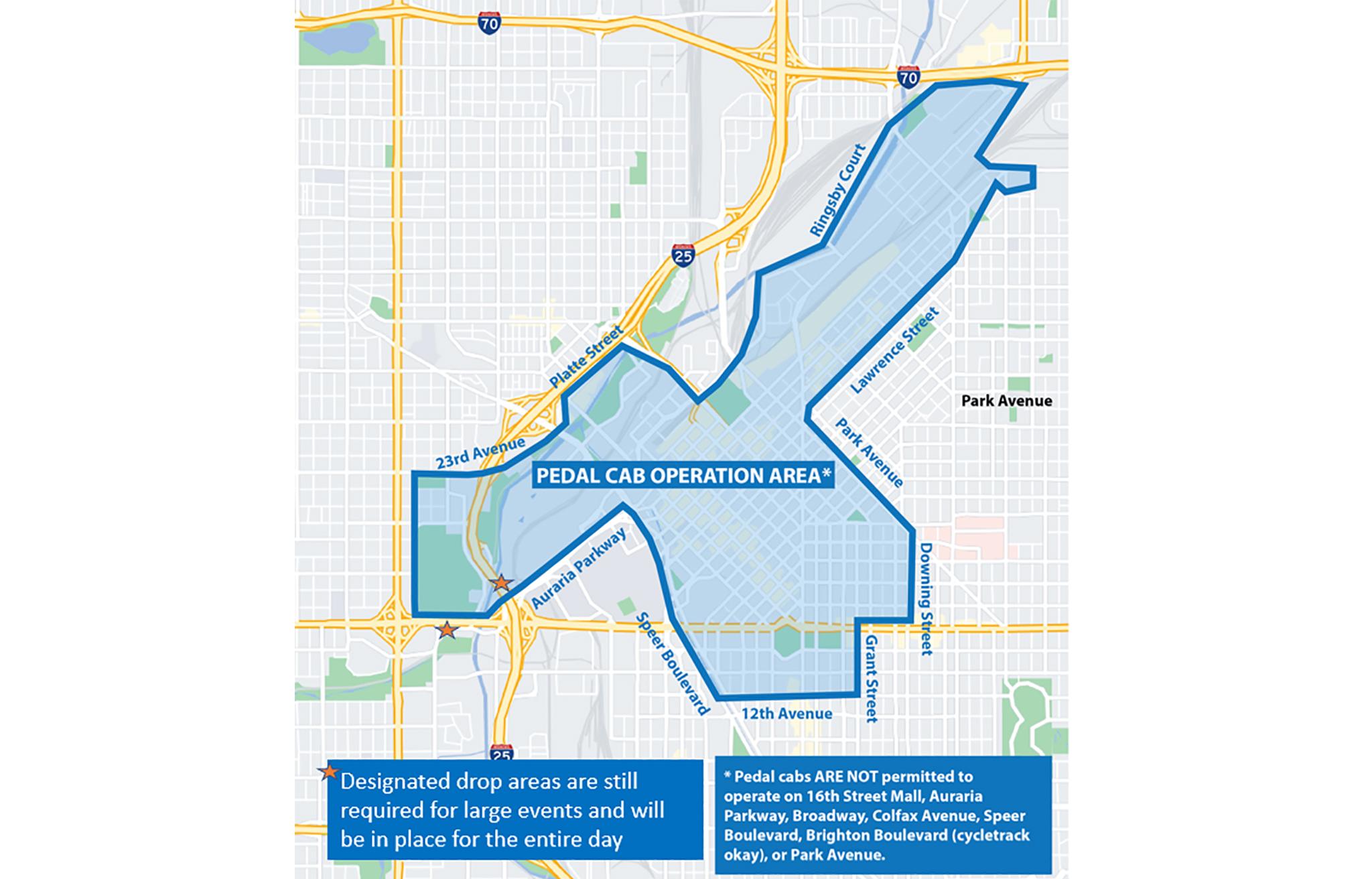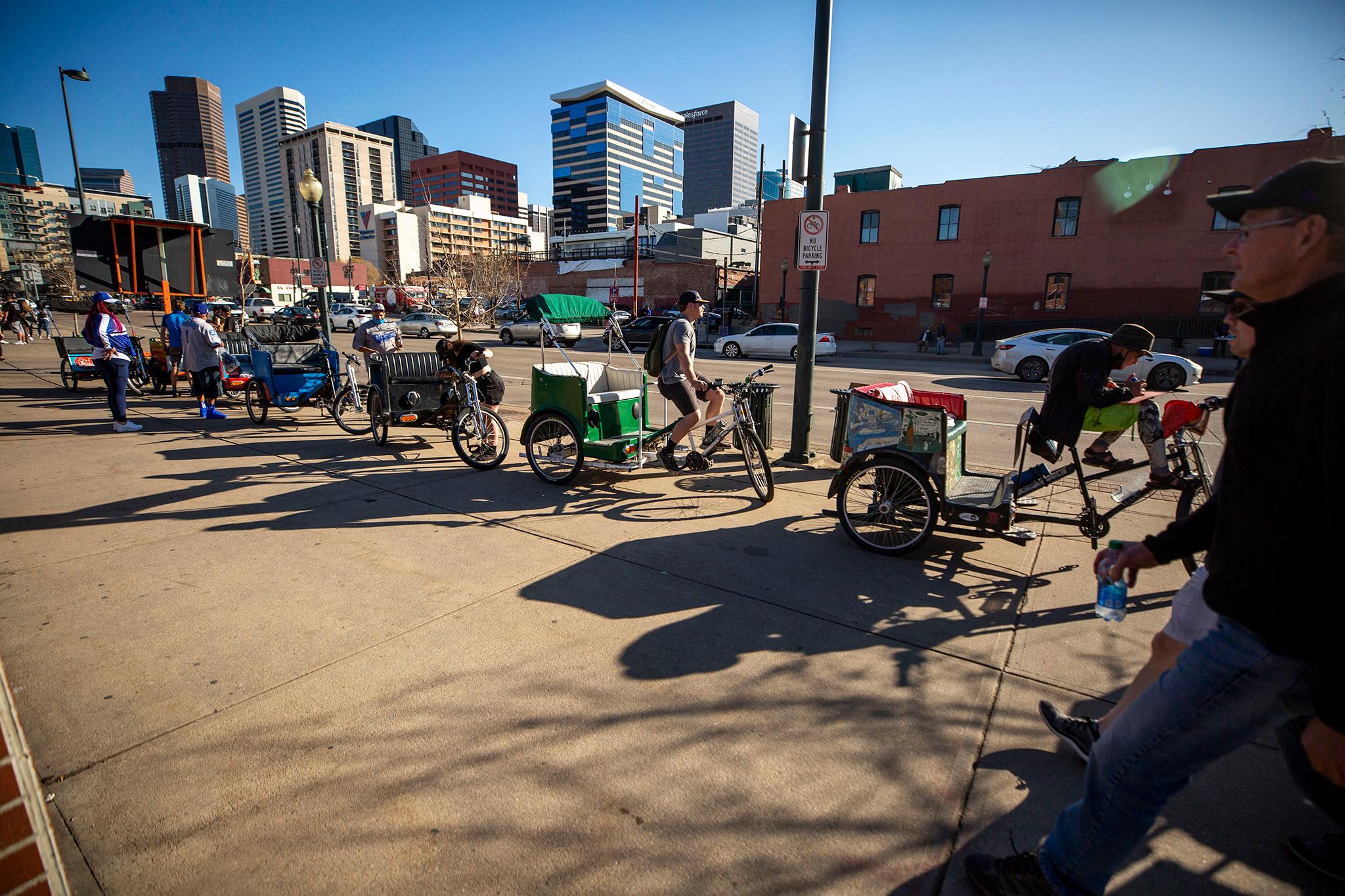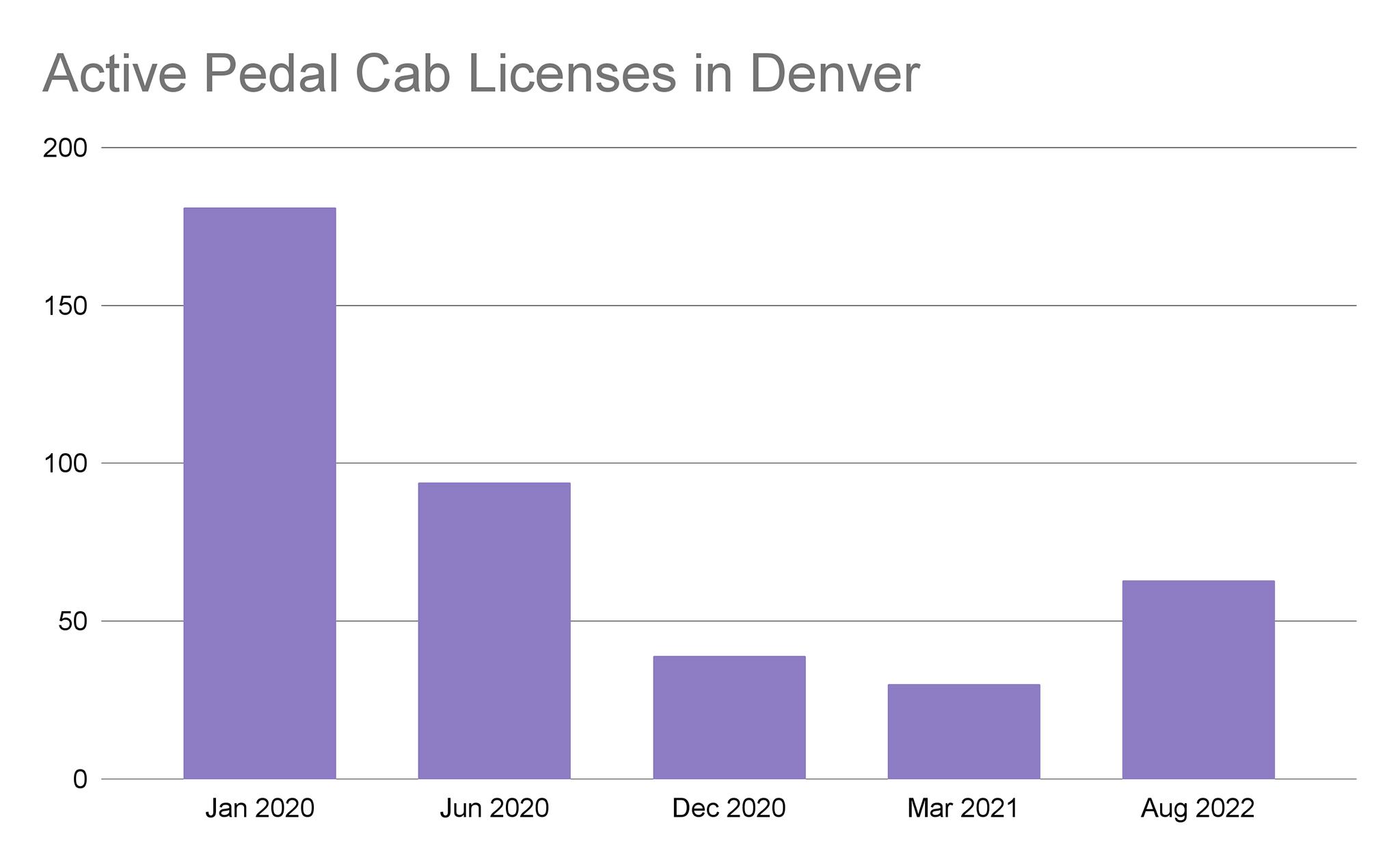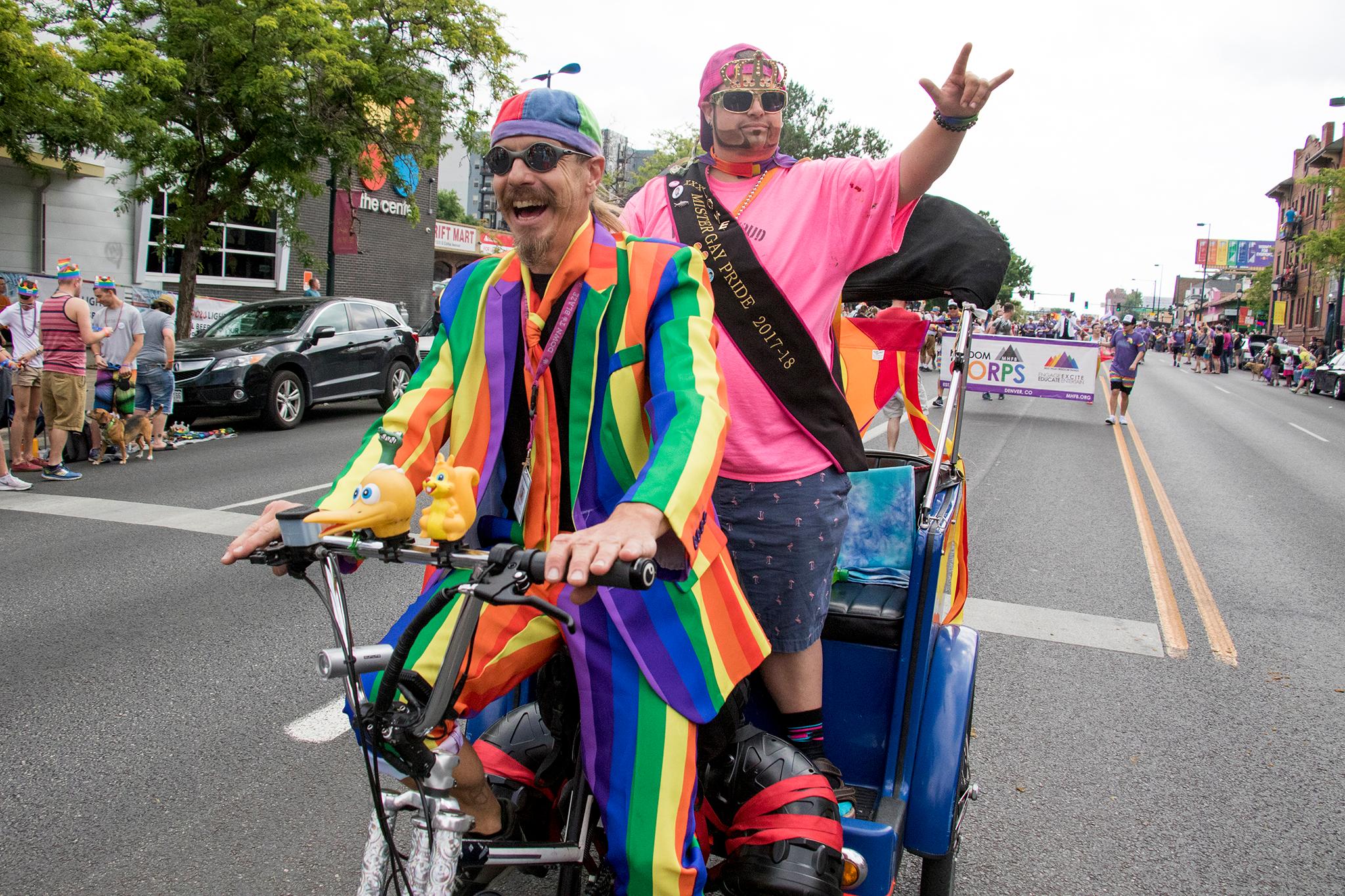Denver's infrastructure department is opening up more room for bike taxis, though they're closing some specific spaces to them at the same time.
DOTI says pedicabs can now drive as far north as the National Western Center, into more parts of Capitol Hill, into the "Golden Triangle" area by the Denver Art Museum and closer to Mile High Stadium.
Meanwhile, they've been barred from riding anywhere in the Central Business District (downtown) on weekdays between 7 and 9 a.m. and 4 and 6 p.m., the 16th Street Mall during renovating construction, and on Colfax Avenue, Speer Boulevard and Auraria Parkway.
Vanessa Lacayo, a DOTI spokesperson, says they're "looking at moving people in and around our city more effectively," and hope pedicabs can help make that happen. She also said they made expansions at the request of the "pedicab community."
Eric Escudero, spokesperson for Denver's licensing department, told us bike taxi drivers could face fines or lose their operating licenses if they work outside of these allowed areas. The borders are "invisible walls" drivers can't cross - passengers need to get off and find their own ways home beyond these hard lines. He said these rules are meant to keep pedal cabs in areas where people need rides while also stop them from driving in places that might put drivers or riders in danger.
"This might be the largest expansion of where they can operate in the history of licensing," he told us. "We hope this will help them and give them a boost, but we need to protect people."

The pedal cab industry is still lagging behind the good old days.
We cold-called a bunch of riders, but many didn't want to speak on record about these changes. One guy told us he used to take people into RiNo before the new rules, and said they won't impact him too much. Another said he was waiting to see how things play out.
Suphakit Trisrivirat, who described himself as an OG driver in town, did talk to us. Generally, he told us, he'll be fine. There's plenty of places to ride and sporting events elsewhere in town are his biggest moneymakers. Still, he's not thrilled to lose the Mall.
"They think it would benefit us to keep us off the Mall to not get in the way of the pedestrians, to make it more safe," he said. "But there's a lot of us that take this job seriously as a career, and that's a big chunk of our change."

Trisrivirat said he kept riding through 2020 and 2021. Even though the city remained dormant, business was "crazy" busy for him at times. Some drivers gave tours to people who had nowhere else to go, since most places were closed. He also said the pandemic pushed a lot of drivers out of the game completely, so there was more work for him.
"There's still a lot of faces from years past, but some of the guys who did this part-time, they went and got jobs," he said.

Before COVID, almost 200 people had licenses to drive bike taxis in Denver. Their numbers fell as COVID took over, down to just 30 in the summer of 2020. Two years later, there are still just 63 people registered to pedal.













